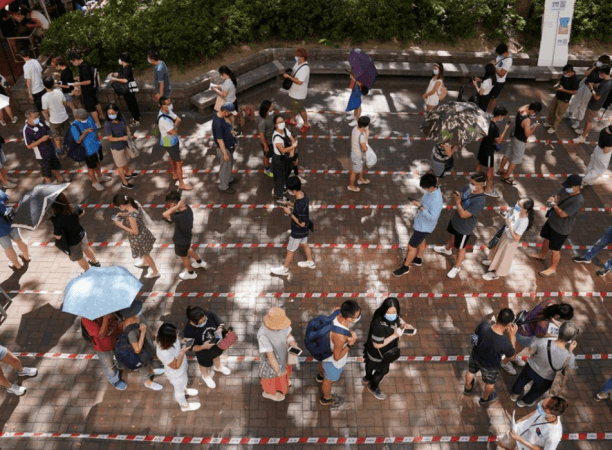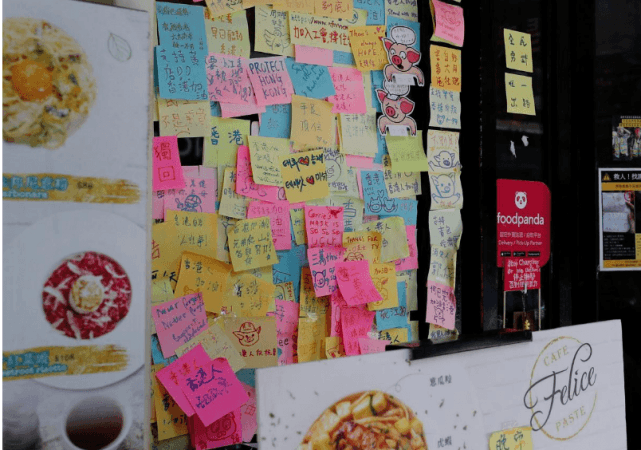Hundreds of thousands of Hong Kong citizens queued to cast ballots over the weekend in what the Chinese-ruled city's opposition camp says is a symbolic protest vote against tough national security laws directly imposed by Beijing.
The unofficial poll will decide the strongest pro-democracy candidates to contest Legislative Council elections in September when they aim to ride a wave of anti-China sentiment stirred by the law to seize control for the first time from pro-Beijing rivals.

Hong Kongers cast 'protest' vote
While the primaries are only for the opposition camp, observers are watching closely as they say the turnout will serve as a test of a broader opposition to the law, which critics say will gravely undermine the city's freedoms.
"A high turnout will send a very strong signal to the international community, that we Hong Kongers never give up," said Sunny Cheung, 24, one of a batch of aspiring young democrats out lobbying and giving stump speeches.
"And that we still stand with the democratic camp, we still support democracy and freedom."
Defying warnings from a senior Hong Kong official that the vote might fall foul of the national security law, residents young and old flocked to over 250 polling stations across the city, manned by thousands of volunteers.
Long queues formed down streets, in residential estates and at businesses-turned-polling stations, with people casting an online ballot on their mobile phones after having their identities verified.

Organisers said 500,000 people had voted by late afternoon on Sunday, in the city of 7.5 million. The full turnout is expected to be announced on Monday morning after two full days of voting this weekend.
The law punishes what China describes broadly as secession, subversion, terrorism and collusion with foreign forces with up to life in prison and allows mainland security agents to operate officially in Hong Kong for the first time.
Despite this tactical vote to maximise their chances, some pro-democracy activists fear authorities will try to stop some candidates from running in September's election.
"They can arrest or disqualify any candidate they don't like under the national security law without a proper reason," said Owen Chow, a young democratic "localist" candidate.
At a time when Hong Kong authorities have barred public marches and rallies for months on end amid coronavirus social restrictions, and arrested individuals for shouting slogans and holding up blank sheets of paper, the vote is being seen as a crucial and rare window for populist expression.
"It's a proxy referendum against the national security law," said Democratic lawmaker Eddie Chu outside a metro station.









!['Had denied Housefull franchise as they wanted me to wear a bikini': Tia Bajpai on turning down bold scripts [Exclusive]](https://data1.ibtimes.co.in/en/full/806605/had-denied-housefull-franchise-they-wanted-me-wear-bikini-tia-bajpai-turning-down-bold.png?w=220&h=138)



